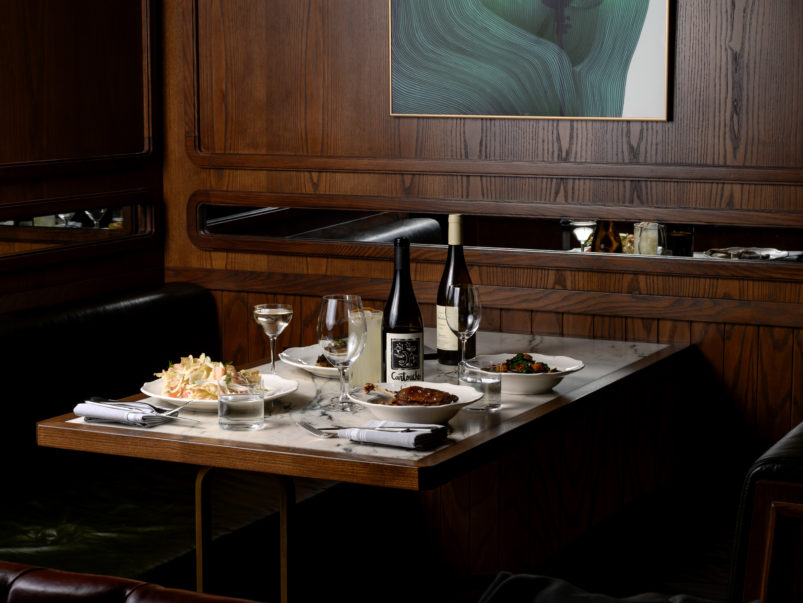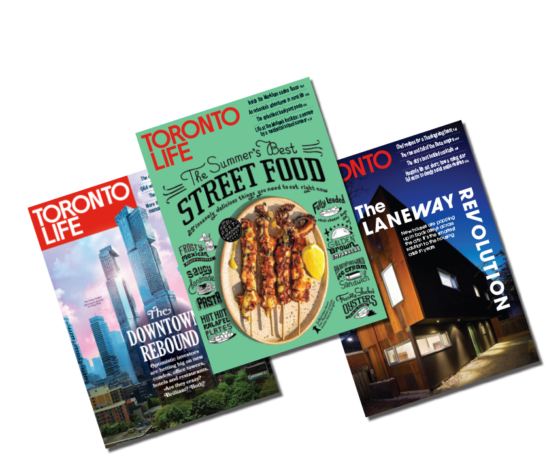What’s on the menu at Bitter Melon, a new spot on Spadina for “Toronto Chinese” small plates and cocktails
Including a Taiwanese take on a Korean corn dog

Name: Bitter Melon
Contact info: 431 Spadina Ave., 647-368-8380, bittermelonrestaurant.com, @bittermelon.to
Neighbourhood: Chinatown
Owners: Andre Au and Joanna Hon
Chefs: Hermawan Lay (Clio, Momofuku, Kasa Moto)
Accessibility: Fully accessible
On the northern periphery of Chinatown, at Spadina and College, husband-and-wife team Andre Au and Joanna Hon have opened a beguiling spot for thoughtful cocktails and small plates. “We classify ourselves as ‘Toronto Chinese,’” says Au. The menu is rooted in East Asia (mainly Chinese, with some Korean and Japanese influence), but South Asian, French and Italian ingredients are married in dishes like beef heart ragu tteokbokki and miso-buttered toast topped with foie gras. “We’re creating a unique cuisine that reflects the city as a whole: Toronto is very multicultural, so we’re mixing it all together—like the city itself.”

The food
When it comes to the dining format, Au says he was inspired by tapas and dim sum. “Tapas and dim sum aren’t so different,” says Au. “The latter is just in the afternoon with tea.” Hon and Au also hope that the small-plate format will encourage those less familiar with East Asian staples (like bitter melon, for example) to try things outside of their comfort zones. “Century eggs are something we grew up eating every week in Hong Kong, but many Canadians haven’t tried them because the colour—a black-brown exterior with a greenish-black yolk—can be off-putting,” he says. “But, by presenting these ingredients in a less intimidating way, we’re hoping to foster appreciation for them.”






The drinks
Pastry wunderkind turned alcohol alchemist Farzam Fallah is the brain behind Bitter Melon’s cocktail list. One of the reasons Au and Hon tapped Fallah to oversee their bar program was for his knowledge of East Asian spirits and flavours: after trading in his chef whites in 2016, he moved to Hong Hong for a stint. Here, he’s built a cocktail list that moves from fruity, fresh and floral to bolder and booze-forward, plus a couple of zero-proof options. Some of his cocktails are riffs on the classics; others are pure Fallah-fied fantasy.
The wine selection, meanwhile, is succinct: just two reds, two whites and a single sparkling. That’s because imported spirits, not grapes, are the focus here. There are eight baijius (a sorghum-derived Chinese liquor) on offer, including one that’s been aged for 50 years, as well as a number of rare Japanese whiskies, including Hibiki Harmony. Sochu, scotch, rye and bourbon round out the mix.





The space
Walking into Bitter Melon feels like stepping into a narrow Hong Kong side street, complete with neon signs. Instead of stalls with street vendors, an open kitchen at the back of the narrow space is animated with chefs buzzing back and forth. Solid Design Creative (Paradise Theatre, Bar Koukla, Maison Selby, DaiLo) added decorative nods to Chinese culture, including lanterns, abacus beads integrated into the booth millwork, and custom artwork, like a backlit brass cut-out of a dragon and a phoenix (a recreation of what was on Au and Hon’s wedding invitations). “I’m super obsessed with ancient Chinese elements,” says Hon, who loves how the bar mimics an apothecary cabinet. “It’s perfect since many of the cocktails infuse herbs and spices.”
















